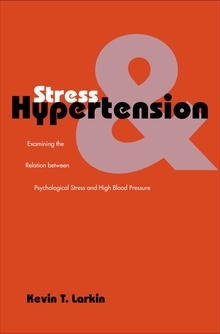Patient Adherence to Medical Treatment Regimens
WARNING
You are viewing an older version of the Yalebooks website. Please visit out new website with more updated information and a better user experience: https://www.yalebooks.com
Bridging the Gap Between Behavioral Science and Biomedicine
Alan J. Christensen
The single most important public health problem facing physicians today may be the failure of patients to follow their prescribed treatment regimens, a phenomenon that results in treatment failures, increased morbidity and mortality, and enormous burdens to society and the economy. This book focuses on the many factors that influence adherence behavior and discusses how this behavior can be improved.
Drawing on data from social, personality, clinical, and health psychology, a leading authority on the subject examines the psychosocial, demographic, contextual, and provider determinants of patient compliance with physician recommendations and stresses their multiplicative influence. Alan J. Christensen presents several theories to account for this behavior and then offers his own new interactional framework, one that applies broader fundamental theorizing about psychological and behavior change to the problem and thereby sheds new light on efforts to promote adherence.
Alan J. Christensen is professor and director of clinical training in the department of psychology and professor in the department of internal medicine at The University of Iowa.
"Despite major advances in medical therapeutics, many patients do not follow recommendations for treatment. As a result, the potential of treatment is diminished. In 1979, Hayes, Taylor and Sackett first summarized the problem in a classic edited text. Over the quarter century since the publication of Compliance in Healthcare, we have made remarkable little progress. Alan Christensen’s book carefully summarized the current literature and sets the stage for new advances by integrating behavioral science theory, methodological issues, and intervention techniques. Using the high level of scholarship we have come to expect from Christensen, this new book offers new insights that will help us understand and conquer the important problem of patient nonadherence."—Robert M. Kaplan, Professor and Chair, Department of Family and Preventive Medicine, UCSD School of Medicine
"This very readable book makes a strong case for the importance of patient adherence in medical contexts and provides a thorough, scholarly, and creative theoretical approach to this complex problem."—Steven M. Tovian, Evanston Northwestern Healthcare, Feinberg School of Medicine at Northwestern University
“Although a number of effective medical and behavioral treatments are now available, their efficacy is limited to the extent that many patients fail to adhere to the prescribed treatment regimen. Christensen provides readers with a thorough review of the determinants of adherence and reviews strategies to improve patient adherence. This is a well-written and scholarly book that is essential reading for psychologists, physicians, and other health professionals interested in enhancing patient adherence to medical therapies and lifestyle change.”—Dr. James Blumenthal, Duke University Medical Center
“Christensen looks at the broad range of factors that influence patient compliance issues, describes various research efforts to better understand those issues, and advocates for the better integration of behavioral science perspectives within biomedical research and practice. The author suggests new lines of research and provides a useful reference section. Recommended. Library collections serving upper-level nursing students, behavioral science graduate students, and medical students through professionals/practitioners.”—Choice
Publication Date: July 11, 2004
16 b/w figures + 7 tables














